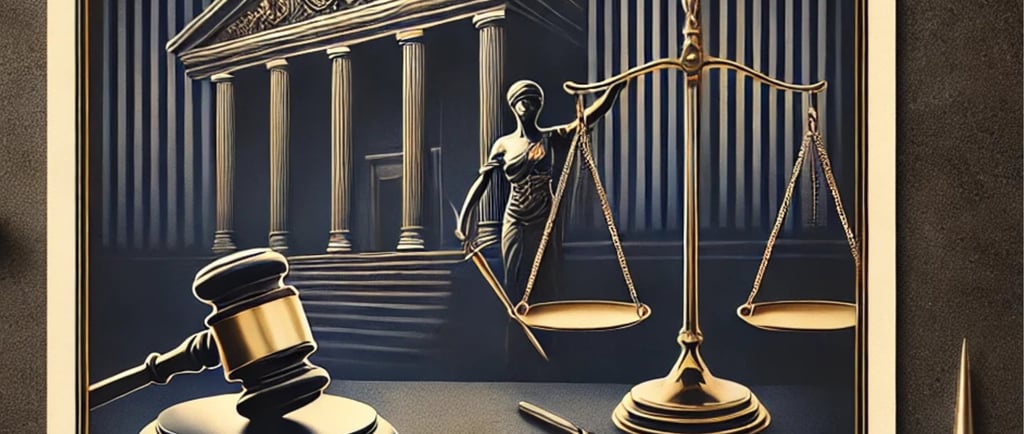Bombay High Court Exonerates Assistant Public Prosecutor and Law Clerk in 22-Year-Old Bribery Case
The Bombay High Court's Aurangabad bench has posthumously acquitted Nasibkhan Gulabkhan Pathan, an Assistant Public Prosecutor (APP), who was accused of soliciting bribes to expedite legal proceedings. In the same judgment, a law clerk implicated in the 22-year-old bribery case was also acquitted.
11/25/20241 min read


Website content
In 2002, a complainant alleged that APP Nasibkhan Gulabkhan Pathan demanded a ₹1,000 bribe to ensure proper presentation of a criminal case before the Judicial Magistrate in Kallam. The Anti-Corruption Bureau (ACB) conducted a sting operation, leading to the arrest of Pathan and his law clerk, Balasaheb Gunvantrao Yadav.
In 2005, a special court in Osmanabad convicted Pathan and his clerk under the Prevention of Corruption Act. The conviction relied on testimony from the complainant and a shadow witness, but the complainant later retracted, claiming the allegations were false and made under coercion. Pathan passed away before his appeal was heard.
The complainant’s retraction cast serious doubt on the prosecution’s case. Despite this, the trial court upheld the conviction, leading Pathan's heirs and Yadav to appeal to the Bombay High Court. The defense argued that the case lacked credible evidence, highlighting inconsistencies in the complainant’s testimony and questioning the reliability of the shadow witness, whose account was contradictory and unsupported by direct involvement.
The defense argued that the prosecution's sanction was invalid, as it was issued by an unauthorized authority. The Court found the evidence insufficient, noting that the complainant’s retraction and the unreliable testimony of the shadow witness undermined the prosecution's case, leaving significant doubt about the allegations.
The High Court noted that the trial court relied solely on the shadow witness and selective answers from the complainant, ignoring the defense's evidence. It found grounds to challenge the trial court’s conclusions.
The High Court held that the shadow witness's testimony was insufficient to uphold a conviction, particularly as the primary witness had turned hostile. It criticized the prosecution for poor case management and deemed the sanction process flawed, labeling it as "mechanical" and raising doubts about its validity. Consequently, the convictions of Pathan and Yadav under the Prevention of Corruption Act were set aside
